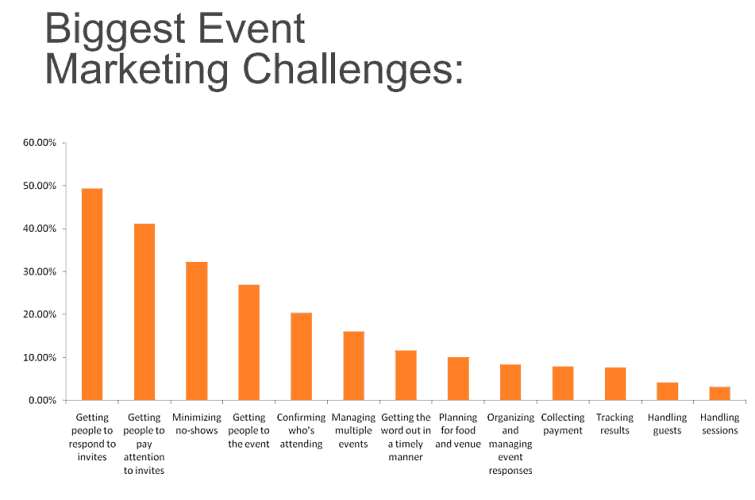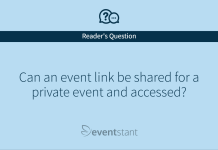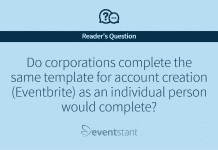
Today, events hold a lot of importance to people doing business. Whether it's nonprofit organizations, government institutions or private companies, all of these entities now place a huge premium on being able to conduct events that all have their own purpose and meaning.
In a recent report by Constant Contact and HubSpot, “The Fascinating Event Marketing Stats“, facts and details about event marketing statistics are presented in a concise and descriptive manner that will help event planners see the real state of event marketing and promotion. In this report, valuable information such as reasons for events, trends in event marketing, and common challenges faced are presented with statistical support.
Stat Breakdowns & Analysis
Events are held for a number of reasons. Seventy-eight percent of the B2C group rank events as very important to them. In nonprofit organizations alone, 90% claim that events are highly important, while B2B companies are the least appreciative of events, with only 68% of them utilizing this particular tool.
What kind of events do these businesses usually hold? Some businesses host or sponsor events for educational purposes — whether it's to help their employees improve on their skills or for the staff to learn new ways to manage stress, educational events are held to foster growth among members of the team, which, in turn, will help the company grow more, too. Aside from educating people and spreading awareness, another reason businesses host events is to generate leads — this is the second-highest ranking reason. This type of the event is usually held to help the business sell or promote their services or products, and to hopefully gain an edge in the market.
[pull_quote_right]Nonprofit organizations host more conferences than B2B and B2C companies combined.[/pull_quote_right]Nonprofit organizations host more conferences than B2B and B2C companies combined, while B2B companies hold more classes more often than any other kind of event, and the B2C companies often hold social gatherings.
Because of the importance of hosting events nowadays to a business, a lot of time, effort and money are spent and invested in order to have a successful event. The combination of careful planning and proper execution is required to make the most out of any event, and a lot of businesses are willing to spend a lot of money to get their events planned and marketed in the best way possible.
Recent data shows the most commonly used methods for marketing an event, and the results of the study reveal the following:
- An average of 5 different promotional methods are used for event marketing
- The most commonly used method is email, with a big chunk of the business population (76%) using email to promote their events
- Next to email, the other popular methods of event promotion are “word of mouth” and “website”
- 47% of those promoting and marketing their events still snailmail their invites, while a close runner-up to this is the good old fashioned phone call at 46%
- 40% use social media, despite the growing popularity: B2Cs are most likely to use it, while B2Bs are the least likely to use it
- More than 27% still send out press releases to inform people and the media
- Only 11% rely on blogging to market their events
- Magazine ads are the least likely means to be used for event marketing and promotion.
These results show an interesting mix of methods used to get people involved and to encourage them to respond to these event promotions. Various marketing strategies are employed to get the target audience to notice and attend events.
Event Marketing Challenges

The biggest challenge that event promoters and marketers face is getting people to respond to event invitations — nearly 50% can’t get people to respond to invites.
Another challenge is not knowing exactly which online tool to use to promote and market events — a surprising 26.4% have difficulty knowing which online tool to use, while 13.6% have no experience whatsoever in using online tools.
Keeping up-to-date on current marketing and promotional trends will help not just the event planners, but will also benefit the businesses that hire them.









![How Important Are Face to Face Meetings [INFOGRAPHIC]](https://eventstant.com/wp-content/uploads/faceToface_v11-sm-218x150.jpg)


![How Social Sharing Drives Sales [INFOGRAPHIC]](https://eventstant.com/wp-content/uploads/social-sharing-drives-revenue-sm-218x150.jpg)
![The Ultimate Wedding Cost Checklist [INFOGRAPHIC]](https://eventstant.com/wp-content/uploads/Wedding-Checklist-1-sm-218x150.jpg)



![Meetings Industry Has MASSIVE Impact on the US Economy [INFOGRAPHIC]](https://eventstant.com/wp-content/uploads/Meetings-Industry-Has-MASSIVE-Impact-on-the-US-Economy-INFOGRAPHIC-218x150.jpg)







[…] How do businesses use various media to promote their events? The latest analysis sheds some light on methods, both successful and not. […]